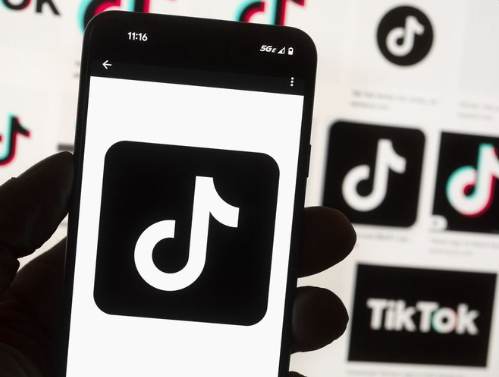The Justice Department has leveled fresh accusations against TikTok, claiming the platform has the potential to amass vast amounts of user data based on views related to contentious social issues like gun control, abortion, and religion. This information, according to government lawyers, is being gathered through an internal web-suite system called Lark, which allows TikTok employees to communicate directly with engineers at its parent company, ByteDance, based in Beijing.
TikTok collected US user views on issues like abortion and gun control, Justice Dept. says https://t.co/IisoGzFHoF pic.twitter.com/rue8SEEHHF
— New York Post (@nypost) July 27, 2024
The allegations suggest that TikTok employees used Lark to transfer sensitive data about U.S. users to servers in China, making it accessible to ByteDance staff. The Justice Department expressed concerns over a tool within Lark that allegedly allows employees in both the U.S. and China to collect data on users’ content and opinions, particularly on sensitive subjects. This follows a previous report by the Wall Street Journal indicating TikTok had monitored users viewing LGBTQ content via a now-deleted dashboard.
In its filing, the Justice Department warned of the risk of “covert content manipulation” by the Chinese government. They argue that if China directed ByteDance or TikTok to alter the platform’s algorithm, it could exacerbate social divisions or influence public trust in democratic institutions. The practice of “heating,” where specific videos are artificially promoted, has been cited as a method that could be misused to shape public opinion.
This legal battle marks a significant defense by the U.S. government in an ongoing case concerning the future of TikTok, which boasts over 170 million American users. A law signed by President Joe Biden in April could potentially ban the app in the U.S. if ByteDance does not sever ties with it. The legislation passed with strong bipartisan support, amid fears that the Chinese government might compel ByteDance to hand over user data or manipulate public sentiment through TikTok’s content algorithms.
Are you aware that TikTok collected U.S. users’ views on gun control, abortion, and religion? What will they do with this data? pic.twitter.com/sOxgDq7CxV
— Lynne B (@Lynnebf_2846) July 27, 2024
The Justice Department insists that the law is focused on national security, not on restricting speech or content on TikTok. They argue that the law is constitutional because it targets the foreign ownership of TikTok, not the content itself. The government also provided classified national security declarations from intelligence officials, including the Director of National Intelligence and the FBI, to support their case.
In response, TikTok spokesperson Alex Haurek claimed that banning the app would violate the First Amendment rights of 170 million American users, and criticized the government’s lack of transparency and evidence. He reiterated TikTok’s confidence in prevailing in court, asserting that the accusations are unfounded and that the ban would unjustly silence users.
The Justice Department also highlighted concerns over censorship, noting that another tool reportedly used by ByteDance could suppress content based on certain keywords, aligning with China’s strict censorship practices. This tool’s policies might have affected TikTok users outside China, particularly around 2022, prompting an investigation by TikTok.
TikTok collected data about its users’ views on sensitive topics, including gun control, abortion and religion, and censored content at the direction of its 🇨🇳 parent company ByteDance.https://t.co/o2sHHoufsu pic.twitter.com/r2Kj9Gj2aO
— Byron Wan (@Byron_Wan) July 28, 2024
The U.S. government remains skeptical of TikTok’s mitigation plan, known as Project Texas, which aims to store U.S. user data on Oracle-owned servers. Officials argue that this measure does not sufficiently address national security concerns. They assert that the current operating structure of TikTok, which is still tied to ByteDance, leaves it vulnerable to demands from the Chinese government for sensitive data, posing a significant risk to U.S. national security.
Major Points:
- The Justice Department accuses TikTok of gathering extensive user data on controversial topics such as gun control, abortion, and religion, using the Lark system to communicate with ByteDance in China.
- The government warns of the risk of “covert content manipulation” by the Chinese government, which could potentially use TikTok’s algorithm to influence public opinion and exacerbate social divisions.
- A new law signed by President Joe Biden could lead to TikTok’s ban in the U.S. if it doesn’t separate from ByteDance, with the Justice Department emphasizing national security over free speech concerns.
- TikTok argues that the ban would violate First Amendment rights and disputes the government’s claims, asserting a lack of evidence and transparency in the accusations.
- The Justice Department points to potential censorship practices similar to those in China and expresses doubts about TikTok’s Project Texas, questioning its effectiveness in protecting U.S. user data from Chinese government access.
RM Tomi – Reprinted with permission of Whatfinger News



